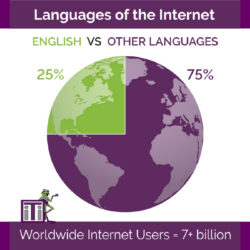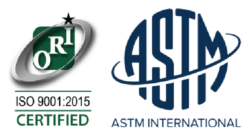What is a Language Service Provider (LSP)?
In our increasingly interconnected world, the ability to communicate across linguistic barriers is more crucial than ever. This is where Language Service Providers (LSPs) come into play, serving as the vital bridge between languages and cultures.
But what exactly is an LSP?
The Role of LSPs in Global Communication
An LSP, or Language Service Provider, is a company that offers a suite of language-related services to facilitate communication in multiple languages. These services range from translation and interpreting to localization and even cultural consulting. LSPs play a pivotal role in global communication, enabling businesses to expand their reach, governments to disseminate information, and individuals to connect across linguistic divides.
The definition of an LSP is not limited to translation alone; it encompasses a broad spectrum of language services that cater to various industries and sectors. Language service provider companies have become integral to international trade, healthcare, legal proceedings, education, government, manufacturing, and technology. They ensure that language barriers do not impede progress or access to services and information.
The Evolution of LSPs with Globalization and Digitalization
 The concept of LSPs is not new, but their importance has grown exponentially with globalization and digitalization. As businesses pursue international markets, the demand for language solutions that can adapt products, services, and content to local languages and cultures has surged. This evolution has transformed traditional translation companies into comprehensive language service providers.
The concept of LSPs is not new, but their importance has grown exponentially with globalization and digitalization. As businesses pursue international markets, the demand for language solutions that can adapt products, services, and content to local languages and cultures has surged. This evolution has transformed traditional translation companies into comprehensive language service providers.
Digitalization has further expanded the role of LSPs. With the advent of the internet, mobile technology, and social media, the need for website localization, technical manual translation, and certified document translation has skyrocketed. LSPs have adapted by incorporating technology into their workflows, utilizing translation memory software and other tools to enhance efficiency and accuracy.
The Services an LSP Might Provide
LSPs offer a wide array of services to meet the diverse needs of their clients. Let’s explore the different types of services you might expect from a top-tier language services company.
Translation Services
At the core of any LSP’s offerings are translation services. These are not just about converting text from one language to another; they involve adapting the material to resonate with the target audience culturally and contextually.
Document Translation
Document translation is the backbone of language translation agencies. It involves the translation of written materials such as contracts, brochures, and reports. The use of human translators, either in place of or in addition to A.I. translation tools, ensures that the meaning and tone of the original document are preserved. Human translators are vital component in delivering translations that are both accurate and culturally appropriate.
 Localization for Websites and Other Marketing Content
Localization for Websites and Other Marketing Content
In the digital age, a company’s website is often the first point of contact with potential customers. Website localization goes beyond mere translation; it’s about adapting your website’s content, design, and functionality to suit different linguistic and cultural norms for each target market.
Additionally, marketing messaging on social media, marketing emails, blog posts, print articles, etc., must be culturally appropriate for their target audience. Machine translation has yet to achieve this level of cultural fluency.
Technical Manual Translation.
Technical manual translation is a specialized service that requires not only linguistic skills but also technical expertise. It is important that your LSP’s translators are well-versed in the specific technical terms and concepts of various industries, ensuring that technical manuals are accurately translated and easily understood by users in different languages.
Certified Document Translation.
There are instances when the accuracy of a translation must be established in a legal proceeding. Some translation solution companies offer certified document translation services. This means they will confirm the translation’s accuracy if needed for a legal proceeding, up to and including testifying in court.
Interpreting Services
Interpreting is another critical service provided by LSPs, facilitating real-time communication between speakers of different languages.
Modes of Interpreting
- Simultaneous interpreting: This mode is often used in conferences, courtrooms, classrooms, and large meetings. Interpreters translate the spoken word in real-time, without waiting for the speaker to pause.
- Consecutive interpreting: In this mode, the interpreter waits for the speaker to pause before translating segments of speech. It’s commonly used with smaller groups, and in settings like medical appointments or legal consultations.

Methods of Interpreting
- In-person interpreting: The most effective method of interpreting, in-person interpreters physically attend the location where their services are needed. This ensures the highest level of accuracy and rapport between the interpreter and communicating parties.
- Video Remote Interpreting (VRI): VRI is a convenient solution for situations where in-person interpreting is not feasible. These services connect you with an interpreter through a video call, and can typically be scheduled in advance or provided on-demand.
- Over-the-phone interpreting (OPI): Essentially a conference call in which one of the parties is an interpreter, OPI is a fast an economical method of reaching an interpreter. It is commonly used by call centers, reducing the need for multiple language queues.
American Sign Language
One of the highest demand types of interpreting is iTi is American Sign Language (ASL). This visual language requires a high level of expertise and training, and remains one of the most called-for forms of interpreting. ASL fulfills federal and state requirements for accommodations for the Deaf and Hard of Hearing.
Additional Services
Beyond translation and interpreting, a language service provider may offer a range of additional services to meet the comprehensive needs of its clients.
Transcription and Translation
Transcription involves converting audio or video content into written text. Law firms and government agencies are common users of this services, where accurate transcription and translation of interviews and depositions are vital.
Subtitling and Voiceovers
Subtitling and voiceover services make audiovisual content accessible to a global audience. From training videos to marketing content, adding subtitles and voiceovers can expand the size of an organization’s video library with one step.
To see how A.I. measures up against human interpreters in accurately subtitling audiovisual content, see our post: Will A.I. Replace Human Interpreters?
Language Proficiency Assessments
To ensure effective communication, some LSPs offers language proficiency assessments that evaluate an individual’s ability to speak, understand, write, and read in a specific language. This is particularly popular in the healthcare sector, to determine where bilingual staff are qualified to have medical conversations with patients and families in languages other than English.
 Community Interpreter Training
Community Interpreter Training
In the U.S., a national standard exists to qualify a professional interpreter to become a Community Interpreter. This requires a 40-hour training course that includes education in skills, standards, and professional ethics.
Some LSPs offer Qualified Medical Interpreter Training courses, which adds training in medical terminology and additional considerations specific to the healthcare industry.
See our 2022 article Should My Bilingual Employees Act as Medical Interpreters? for an in-depth discussion on this topic.
CART and C-Print
CART and C-Print services are accommodations for deaf and hard-of-hearing people that are legally recognized. CART provides word-for-word subtitles of spoken words, while C-Print offers more summarized notes. Both help with understanding spoken information.
These services are useful for people who have difficulty understanding spoken English. They also have the advantage of creating a written transcript of speeches, webinars, meetings, and panel discussions.
Multilingual Desktop Publishing
Multilingual desktop publishing services ensure that your translated documents are not only linguistically accurate but also visually appealing for the target audience. This may require, changing the format, images, and design of the original material in order for the message to resonate with a different culture.
What is a Language Access Plan?
A Language Access Plan or Program is a comprehensive approach designed to ensure that individuals who do not speak English as their primary language have equal access to services and information. It’s a strategic framework that organizations implement to address and remove language barriers, enabling effective communication with non-English speakers.
Organizations with a serious commitment to diversity, equity, and inclusion (DEI) will often implement a comprehensive language access plan. This is especially common in healthcare organizations.
Explanation of Language Access Plans
Language Access Plans are tailored to the specific needs of an organization and the communities it serves. They typically include policies, procedures, and practices that identify language needs, determine how to respond to those needs, and ensure that language services are available and easily accessible. These plans are crucial for organizations that interact with diverse populations, including government agencies, healthcare providers, educational institutions, and businesses.
Legal Requirements for Language Access in Various Sectors
In many countries, there are legal requirements for language access, particularly in sectors that receive federal funding or are subject to anti-discrimination laws. For instance, in the United States, Title VI of the Civil Rights Act of 1964 prohibits discrimination based on national origin, which includes language. This means that organizations must provide language assistance to ensure meaningful access to their programs and services.
The Americans with Disabilities Act (ADA) requires accommodations for the Deaf and Hard of Hearing, and both ASL interpreting and CART and C-Print services ensure compliance with this requirement. For healthcare organizations, the Affordable Care Act (ACA) requires the availability of interpreting and translation services for limited English proficient (LEP) patients and their families.
Similar legal frameworks exist in other countries, reflecting the global recognition of the importance of language access.
The Benefits of Having a Language Access Plan or Program
Enhancing Communication with Non-English Speakers
By implementing a Language Access Plan, organizations can significantly enhance communication with non-English speakers. This leads to better understanding, fewer errors, and more efficient service delivery. It’s not just about translating words; it’s about conveying meaning and intent, which is essential in building trust and rapport.
Improving Customer Satisfaction and Loyalty
Organizations that provide language services often see improvements in customer satisfaction and loyalty. When clients feel understood and valued, they are more likely to return and recommend the services to others. This is particularly true in industries like healthcare and legal services, where clear communication is paramount.
Expanding Into and/or Becoming More Competitive in a Global Market
A Language Access Plan can be a key differentiator in a global market. It allows organizations to expand their reach and tap into new customer bases. Moreover, it demonstrates cultural sensitivity and global awareness, traits that are highly valued in today’s competitive landscape.
Compliance with Legal and Ethical Standards
Adhering to legal and ethical standards is another compelling reason to have a Language Access Plan. It ensures compliance with laws such as the Americans with Disabilities Act (ADA), reducing the risk of legal challenges and penalties. It also aligns with ethical principles of equity and inclusivity, reinforcing an organization’s commitment to serving all members of the community.
The Advantages of a Single Provider over Multiple Providers
- Streamlined Communication and Consistency with a Single Provider. Working with a single language service provider (LSP) offers streamlined communication and consistency. A single provider becomes familiar with an organization’s specific terminology, preferences, and processes, leading to more cohesive and reliable language services.
- Improved/More Transparent Reporting and Billing. A single LSP can provide improved and more transparent reporting and billing. With a consolidated view of language services, organizations can track usage, outcomes, and expenditures more effectively, leading to better decision-making and budget management.
- Savings Because of a Preset Schedule of Fees – a Language Services Agreement (LSA). An LSA with a single LSP can result in savings due to a preset schedule of fees. Organizations can negotiate favorable rates and terms, benefiting from volume discounts and avoiding the administrative costs associated with managing multiple vendors.
- Time Savings. With a single provide, an organization always knows who to contact for any language service need. By having a preset schedule of fees, the need for individual quotes and contracts is bypassed, reducing turnaround time for translation projects and allowing for last-minute and on-demand interpreting sessions.
What to Look for in a Language Service Provider
Expertise and Experience in Relevant Industries
When selecting an LSP, it’s important to consider their subject matter expertise and experience in relevant industries. An LSP like iTi, with a proven track record in sectors such as healthcare, legal, and government, can provide services that are not only linguistically accurate but also industry-specific.
 Quality Assurance Processes and Certifications
Quality Assurance Processes and Certifications
Quality assurance processes and certifications are indicators of an LSP’s commitment to excellence. Look for providers that have rigorous quality control measures in place and hold industry-recognized certifications.
Certifications from organizations such as the American Society for Testing and Materials (ASTM) and the International Organization for Standardization (ISO) indicate that the LSP has passed rigorous standards for QA and customer satisfaction.
Reputation for Customer Service Excellence and Personal Attention
A reputation for customer service excellence and personal attention is crucial. An LSP that is responsive, attentive, and dedicated to meeting client needs will contribute to a successful partnership.
Customization of Language Services Plans Based on Organization’s Size and Needs
The ability to customize language services plans based on an organization’s size and needs is a valuable trait in an LSP. Whether it’s a small business or a large corporation, the LSP should be able to tailor its services to fit the client’s unique requirements.
Technological Capabilities for Modern Language Services
Technological capabilities are increasingly important in modern language services. An LSP that leverages the latest technology can provide more efficient, accurate, and innovative solutions.
Availability of Certified Document Translation
Certified document translation is a must-have service for many organizations, especially those involved in legal proceedings or international business. Ensure that the LSP offers certified translations that meet the necessary standards.
Number of Languages Available
The number of languages an LSP offers is another consideration. A provider with a wide range of languages can serve as a one-stop-shop for all your language needs.
Hours/Days Interpreting Services Are Available
Finally, consider the availability of interpreting services. An LSP that offers extended hours or 24/7 availability ensures that you have access to interpreters whenever you need them.
The Top LSPs in the U.S.
The landscape of language service providers (LSPs) in the United States is both vast and dynamic, with companies of various sizes catering to a multitude of language needs across different sectors. These top LSPs are characterized by their comprehensive service offerings, commitment to quality, and innovative approaches to overcoming language barriers.
Overview of Leading LSPs in the U.S. Market
The U.S. market boasts a number of leading LSPs that have established themselves as key players in the industry. These language service provider companies offer a range of services, including translation, interpreting, localization, and more. They serve a diverse clientele, from multinational corporations to government agencies, and are essential in facilitating global communication and commerce.
The criteria for being a top LSP include the ability to provide language solutions across a wide array of industries, the use of advanced technology to enhance service delivery, and a reputation for exceptional customer service. Additionally, these providers must be able to handle language service provider technical documents with expertise, ensuring accuracy and confidentiality.
See our article on the Top Translation Companies You Should Know About.
iTi’s Position and Strengths Among Top Providers
Among these providers, Interpreters and Translators, Inc. (iTi) stands out for its personalized approach and dedication to quality. iTi is not just another translation company or interpreting company; it is a full-service language translation agency that prioritizes the unique needs of each client.
iTi’s strengths lie in its:
- Expertise: With years of experience, iTi has honed its skills across various sectors, making it one of the top language service providers in the U.S.
- Customer Service: iTi’s commitment to customer satisfaction is evident in its responsive support and tailored solutions.
- Quality: iTi upholds the highest standards of quality, reflected in its rigorous quality assurance processes and industry certifications, including both ISO and ASTM.
- Technology: Leveraging cutting-edge technology, iTi offers efficient and innovative language services that set it apart from other interpreting agencies and interpreter agencies.
 Why You Should Choose iTi as Your LSP
Why You Should Choose iTi as Your LSP
When it comes to choosing a language service provider, organizations should look for a partner that not only understands their language needs but also aligns with their values and goals. iTi embodies such a partner, with a client-centric model and an unwavering commitment to quality and customer service.
iTi’s Commitment to Quality and Customer Service
Quality and customer service are at the heart of iTi’s mission. As a premier language services provider, iTi ensures that each project, regardless of size or complexity, receives the utmost attention to detail. iTi’s team of professional linguists and project managers work closely with clients to deliver results that exceed expectations.
Customized Solutions for Diverse Language Needs
iTi recognizes that each organization has unique language needs. Whether it’s a small business requiring occasional document translation or a large corporation needing regular interpreting services, iTi offers customized solutions. Its ability to mix and match services ensures that clients receive the most effective and cost-efficient language support.
 iTi’s Use of Cutting-Edge Technology for Efficient Service Delivery
iTi’s Use of Cutting-Edge Technology for Efficient Service Delivery
In today’s fast-paced world, efficiency is key. iTi stays ahead of the curve by incorporating the latest technological advancements into its service delivery. From language translation agency software that ensures consistency across documents to video remote interpreting platforms that connect clients with interpreters instantly, iTi’s technological capabilities are unmatched.
Choosing the right LSP is a critical decision for any organization operating in a global context. iTi not only meets the industry’s language service provider definition but redefines it through its dedication to excellence. With iTi, organizations can rest assured that their language needs will be met with the highest level of professionalism and care.
Are you ready to bridge the language gap and connect with your audience more effectively? Contact Interpreters and Translators, Inc. today and discover how our language solutions can empower your organization. Let’s work together to create a world without language barriers.
Get in touch with iTi to start your journey towards seamless global communication.
| Talk to an Expert |
Interpreters and Translators, Inc. is a full-service language solutions company based in Glastonbury, Connecticut. iTi is an NMSDC-certified minority owned business.








Comments are closed here.